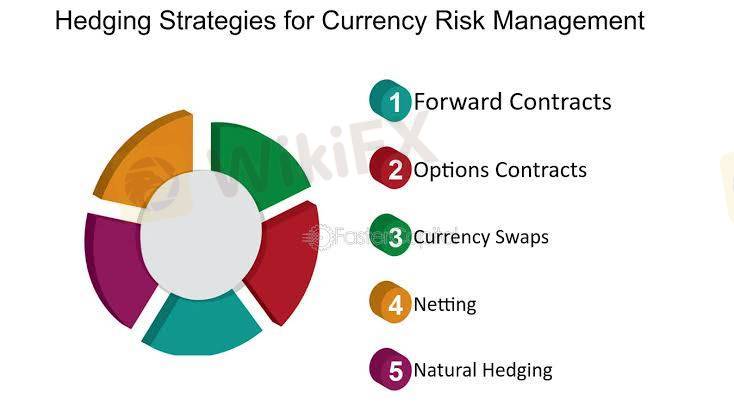
2025-02-12 16:47
NgànhCurrency Risk Management
#firstdealoftheneeyearastylz
Currency risk management refers to the practices and strategies used to mitigate the risks associated with fluctuations in currency exchange rates. Here's an overview:
Types of Currency Risk:
1. Transaction risk: risk of exchange rate fluctuations affecting the value of future cash flows.
2. Translation risk: risk of exchange rate fluctuations affecting the value of assets and liabilities.
3. Economic risk: risk of exchange rate fluctuations affecting the competitiveness of a company.
Currency Risk Management Strategies:
1. Hedging: using derivatives, such as forward contracts, options, and swaps, to lock in exchange rates.
2. Currency diversification: diversifying investments and revenues across multiple currencies.
3. Currency matching: matching assets and liabilities in the same currency.
4. Currency overlay: using a separate currency overlay strategy to manage currency risk.
5. Natural hedging: using business operations to naturally hedge currency risk.
Currency Risk Management Tools:
1. Forward contracts: binding agreements to buy or sell currency at a set rate.
2. Options: contracts giving the holder the right to buy or sell currency at a set rate.
3. Swaps: agreements to exchange cash flows in different currencies.
4. Futures: standardized contracts to buy or sell currency at a set rate.
5. Currency options and futures exchanges.
Best Practices for Currency Risk Management:
1. Identify and assess currency risk exposure.
2. Develop a currency risk management strategy.
3. Monitor and adjust the strategy as needed.
4. Use a combination of risk management tools.
5. Continuously review and improve the risk management process.
By implementing effective currency risk management strategies, companies can reduce their exposure to currency fluctuations and protect their financial performance.
Thích 0

Odogwu920
Pialang
Bình luận phổ biến
Ngành
Có cao quá k?
Ngành
Xin ý kiến liberforex
Ngành
Đầu tư CDG
Ngành
Cắt lỗ
Ngành
Có nên chốt lỗ?
Ngành
Hỏi về dòng tiền
Phân loại diễn đàn

Nền tảng

Triển lãm

IB

Tuyển dụng

EA

Ngành

Chỉ số thị trường

Chỉ số
Currency Risk Management
 Hong Kong | 2025-02-12 16:47
Hong Kong | 2025-02-12 16:47#firstdealoftheneeyearastylz
Currency risk management refers to the practices and strategies used to mitigate the risks associated with fluctuations in currency exchange rates. Here's an overview:
Types of Currency Risk:
1. Transaction risk: risk of exchange rate fluctuations affecting the value of future cash flows.
2. Translation risk: risk of exchange rate fluctuations affecting the value of assets and liabilities.
3. Economic risk: risk of exchange rate fluctuations affecting the competitiveness of a company.
Currency Risk Management Strategies:
1. Hedging: using derivatives, such as forward contracts, options, and swaps, to lock in exchange rates.
2. Currency diversification: diversifying investments and revenues across multiple currencies.
3. Currency matching: matching assets and liabilities in the same currency.
4. Currency overlay: using a separate currency overlay strategy to manage currency risk.
5. Natural hedging: using business operations to naturally hedge currency risk.
Currency Risk Management Tools:
1. Forward contracts: binding agreements to buy or sell currency at a set rate.
2. Options: contracts giving the holder the right to buy or sell currency at a set rate.
3. Swaps: agreements to exchange cash flows in different currencies.
4. Futures: standardized contracts to buy or sell currency at a set rate.
5. Currency options and futures exchanges.
Best Practices for Currency Risk Management:
1. Identify and assess currency risk exposure.
2. Develop a currency risk management strategy.
3. Monitor and adjust the strategy as needed.
4. Use a combination of risk management tools.
5. Continuously review and improve the risk management process.
By implementing effective currency risk management strategies, companies can reduce their exposure to currency fluctuations and protect their financial performance.
Thích 0
Tôi cũng muốn bình luận.
Đặt câu hỏi
0bình luận

Chưa có người bình luận, hãy là người bình luận đầu tiên

Đặt câu hỏi
Chưa có người bình luận, hãy là người bình luận đầu tiên